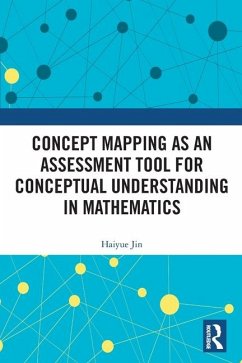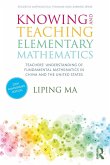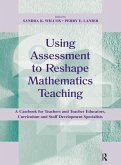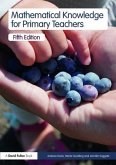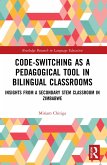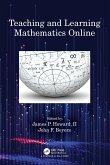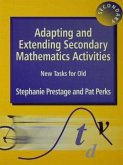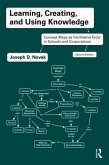This book investigates the practicability and effectiveness of the concept map as a tool for assessing students' conceptual understanding in mathematics.
The author first introduces concept mapping and then employs it to investigate students' conceptual understanding of four different mathematical topics. Alongside traditional scoring methods, she adopts Social Network Analysis, a new technique, to interpret student-constructed concept maps, which reveals fresh insights into the graphic features of the concept map and into how students connect mathematical concepts. By comparing two traditional school tests with the concept map, she examines its concurrent validity and discusses its strengths and drawbacks from the viewpoint of assessing conceptual understanding. With self-designed questionnaires, interviews, and open-ended writing tasks, she also investigates students and teachers' attitudes toward concept mapping and describes the implications these findings may have for concept mapping's use in school and for further research on the topic.
Scholars and postgraduate students of mathematics education and teachers interested in concept mapping or assessing conceptual understanding in classroom settings will find this book an informative, inspiring, and overall valuable addition to their libraries.
The author first introduces concept mapping and then employs it to investigate students' conceptual understanding of four different mathematical topics. Alongside traditional scoring methods, she adopts Social Network Analysis, a new technique, to interpret student-constructed concept maps, which reveals fresh insights into the graphic features of the concept map and into how students connect mathematical concepts. By comparing two traditional school tests with the concept map, she examines its concurrent validity and discusses its strengths and drawbacks from the viewpoint of assessing conceptual understanding. With self-designed questionnaires, interviews, and open-ended writing tasks, she also investigates students and teachers' attitudes toward concept mapping and describes the implications these findings may have for concept mapping's use in school and for further research on the topic.
Scholars and postgraduate students of mathematics education and teachers interested in concept mapping or assessing conceptual understanding in classroom settings will find this book an informative, inspiring, and overall valuable addition to their libraries.

